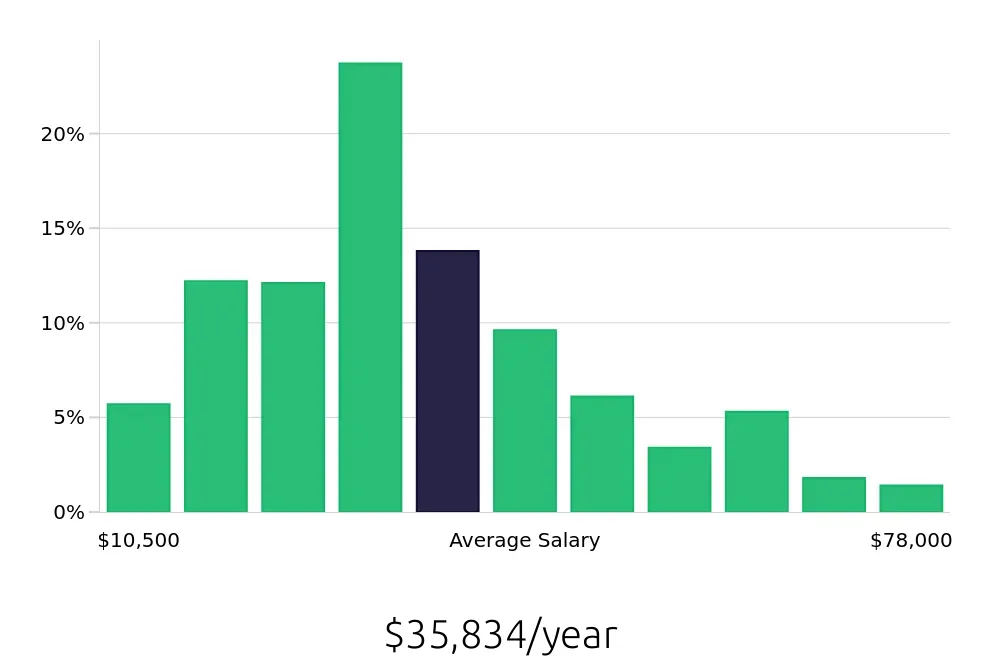Position
Overview
A bartender plays a crucial role in the hospitality industry. They prepare and serve drinks to customers in bars, restaurants, and other establishments. This involves mixing cocktails, pouring beers, and serving wines. A bartender must have a good memory for various drink recipes and the ability to interact with customers to ensure they enjoy their beverages.
Additionally, a bartender needs to manage inventory, ensuring the bar has enough supplies. They also handle payments and sometimes manage the bar's finances. The job requires excellent customer service skills, quick thinking, and the ability to work in a fast-paced environment. Bartenders often work in shifts, including evenings and weekends, to accommodate busy hours. This role is ideal for individuals who enjoy a dynamic work environment and have a passion for mixology.
Becoming a bartender can lead to a rewarding career in the hospitality industry. It involves learning how to mix drinks and serve customers with a smile. This path is accessible and offers many opportunities for growth. To start this career, one must follow a clear process.
The journey to becoming a bartender includes several key steps. Completing these steps can prepare someone for a successful career. Below are the steps to guide someone through the process.
Interested in a career as a bartender? Learning about the time it takes to become one can help set clear expectations. Most aspiring bartenders start with a certification program. These programs can vary from a few days to several months. Some schools offer accelerated courses. These can take as little as two weeks to complete. Others may span up to six months.
After certification, hands-on experience is key. Bartenders often begin with entry-level positions. They may start as a barback or a server. This experience helps in learning the fast-paced environment of a bar. Many find that gaining practical experience takes about six months to a year. During this time, skills in drink preparation and customer service improve. Bartenders who seek advanced roles may invest additional time in specialty training. This could include mixology or cocktail classes. These classes can last from a few days to several weeks. Continued experience and training often lead to career growth and higher earning potential.
We are seeking a skilled and energetic Bartender to join our team. The ideal candidate will be responsible for creating and serving a wide variety of drinks to customers in a fast-paced environment. This role requires excellent customer service skills, a strong understanding of various alcoholic beverages, and the ability to work well under pressure.
Responsibilities:
Qualifications
Working as a bartender offers a dynamic career with many opportunities. Bartenders serve drinks in bars, restaurants, and event venues. They mix cocktails, interact with customers, and manage drink orders. This job combines creativity with service skills. Bartenders can work in various environments, from high-end cocktail bars to casual pubs. It is a role that combines skill with social interaction, making it appealing to many.
The job has both bright spots and challenges. Working as a bartender allows for creativity with drink recipes. It also offers a chance to meet many different people. Bartenders often work evenings and weekends, which can be a plus for those with flexible schedules. However, it can also mean long hours and less time for personal activities. Financial rewards can be good, but they often rely on tips, which can vary. Working in a bar can sometimes mean dealing with difficult customers or working in a noisy environment.
Consider these pros and cons before starting a career as a bartender:
The job outlook for bartenders shows a stable path forward for career seekers interested in this dynamic role. According to the Bureau of Labor Statistics (BLS), an average of 113,500 bartender positions are expected to be available each year. This consistent demand reflects the enduring popularity of dining and entertainment venues across the nation.
The BLS also predicts a positive job outlook, with a 3.3% increase in job openings from 2022 to 2032. This modest growth rate indicates a steady demand for skilled bartenders, providing a promising career path for those entering or transitioning into this field. Bartenders can expect to find ample opportunities in restaurants, bars, hotels, and other hospitality settings.
Earnings for bartenders reflect the skill and experience of the individual. The national average annual salary stands at $37,090, as reported by the BLS. On an hourly basis, bartenders earn an average of $17.83, highlighting the potential for higher earnings through experience and additional certifications. Those seeking a stable and rewarding career will find the bartender profession to be a viable and lucrative option.
